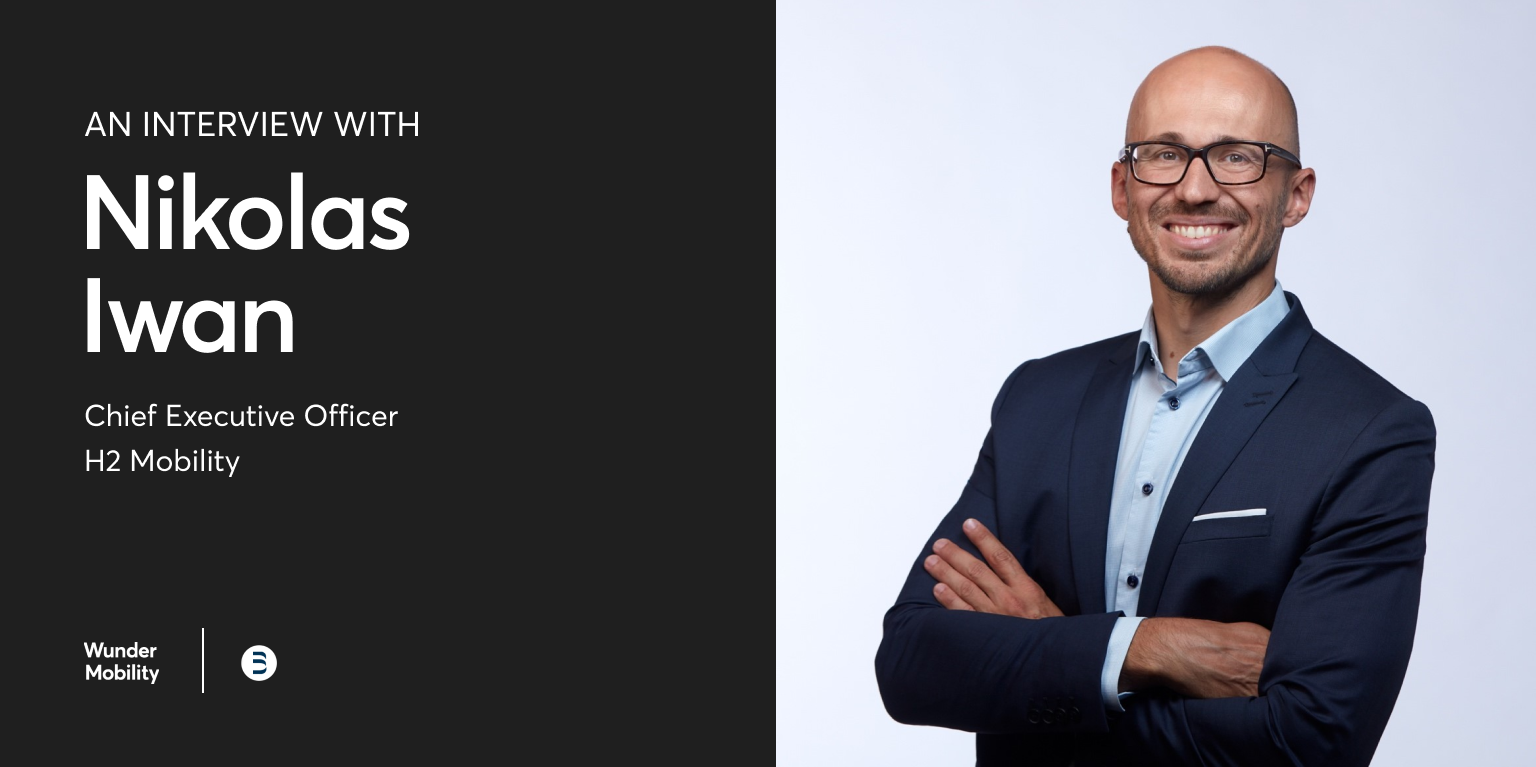
When people think of environmentally friendly vehicles, they often think of vehicles powered by electricity. Electromobility, however, isn’t the only viable sustainable mobility alternative. In this interview from our cooperation with Wunder Mobility, we spoke with Nikolas Iwan, CEO of H2 Mobility, a company aiming to build a national network of hydrogen refilling stations in Germany, about the potential of hydrogen powered mobility in Germany, what other countries are doing with hydrogen, and the advancements of policies that would propel its growth.
H2Mobility set itself the goal of installing 100 hydrogen stations. Why exactly 100? Where does this number come from?
The number 100 is linked to many important milestones. For example, with 100 filling stations, you can reach a great many people – six million real driving profiles to be precise. We have almost reached that number. That’s why it’s now a question of building on this and upgrading and expanding this network, especially in the direction of commercial vehicles.
How do you view the German government’s hydrogen strategy? And how do you classify the political measures that have so far often focused on electromobility?
I have a very positive view of the hydrogen strategy. It is very well balanced, goes in the right direction and can lead to Germany taking advantage of the opportunities offered by hydrogen at all levels – both from an industrial and an environmental perspective. On the other hand, I look at the actions of the German car manufacturers with great concern, because there are always attempts not only to criticize hydrogen, but also to prevent it as a topic of discussion. And that would be a big missed opportunity, because we only have two options for zero-emission mobility: battery and hydrogen – leaving one of them out would be extremely damaging. I don’t even think that this scenario, in which hydrogen is stopped, will happen. But I believe much more that Germany will lose out in the development of hydrogen. Because Chinese OEMs are already willing to invest a lot of money in hydrogen, even if the outcome will only become apparent in 10-20 years. This is not the case in Germany. Here, hydrogen is still being looked at much more cautiously and then, presumably in 2030, the experience of the Chinese companies will be drawn upon.
So would you like to see a new German government advocate more technology openness in the context of decarbonization, regardless of what that government will look like?
For me, technology openness is the wrong term here, because it also means that solutions such as LNG must be taken into account, although they do not represent a zero-emission solution. In my opinion, there are only two solutions: Batteries and hydrogen. And the goal should be at least not to put a bar in front of one or the other. Instead, these two should be genuinely supported and pushed forward with full energy.
Are there any specific requirements for this in terms of how exactly these two forms can and should be advanced?
Yes, a single funding push for electric cars. In other words, equal treatment of electric vehicles. And whether the energy then comes from the fuel cell or from the battery, that should not be of interest to policymakers. You can then subsume everything else under that: from the creditability of the savings in transport to the infrastructure. There should be a full push on zero emission electric vehicles and everything that supports them, and no discrimination as to where the energy in the vehicle then ultimately comes from for the electric motor.
Are other countries already doing a better job, and can we learn something from them?
Yes, definitely. In Germany, we still think we’re pioneers when we now fully support battery solutions. But in China, for example, batteries are already considered an old innovation. They are now focusing everything on hydrogen, without slowing down in any way in the development and use of the battery.
In California, on the other hand, we have a very successful path from an infrastructure perspective, because there are fixed percentages for zero-emission vehicles that have to be met. In Germany, however, that is a red rag. Nevertheless, we are also on the right track here. The government should just be a bit more open to hydrogen and support the forms that really enable zero-emission mobility.
In a best case scenario, how can the use of hydrogen develop over the next five years? What potential can actually be realized?
In five years, four things can realistically happen: First, there may be cases in the commercial vehicle sector where hydrogen really works as an economical solution, so that it is profitable to use it on a larger scale (and not just as a pilot case). Second, we may get a 100MW scale electrolyzer in five years. (For comparison, currently we are still at about 10MW.) If we can do that, then the cost will drop extremely and be comparable to diesel. The probability of this is very high. However, it depends again strongly on the fact that politically no bar is pushed in front of it. Thirdly, it may happen in the course of this that the relevance of network utilities is understood and better taken into account. And last but not least, there may be a steady ramp-up of passenger cars over the next five years, so that, on the one hand, large numbers can be produced and, on the other, this solution is kept in play for the future.